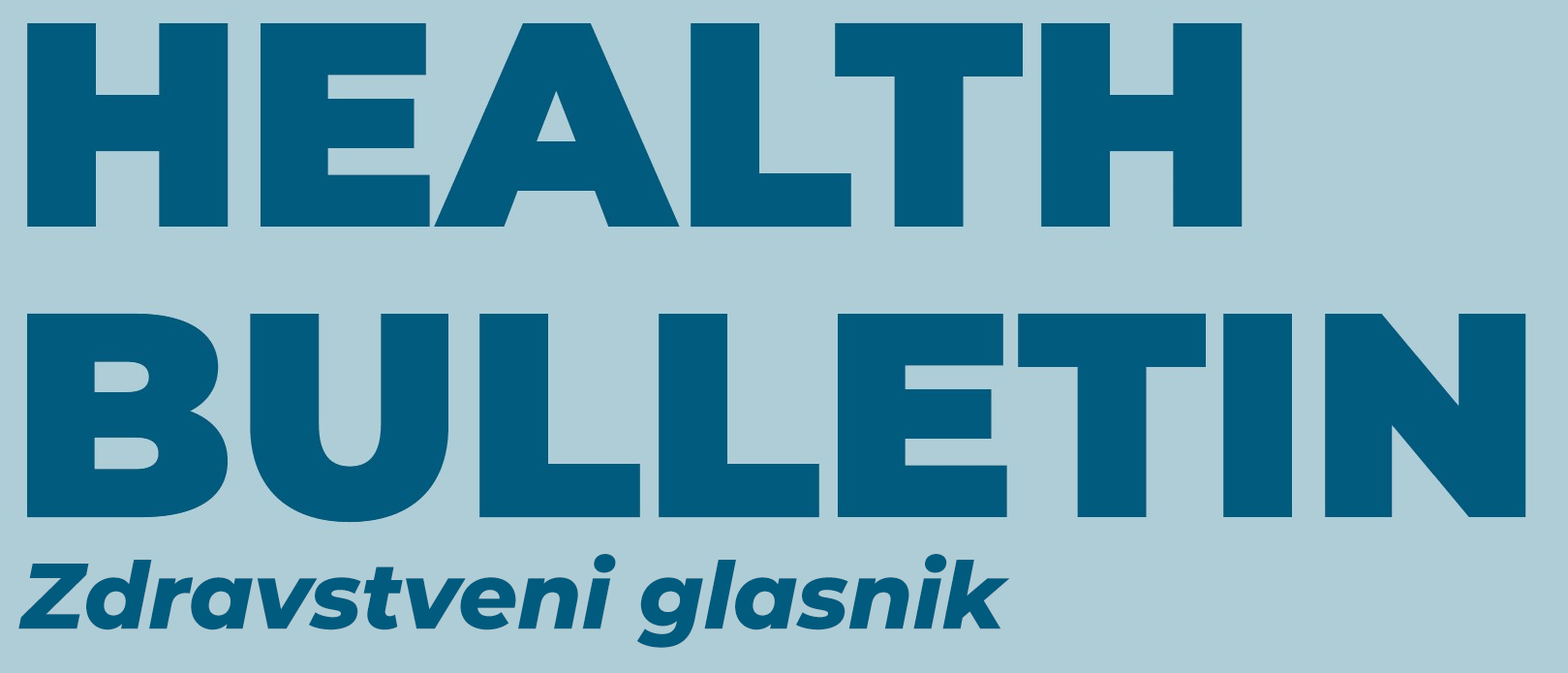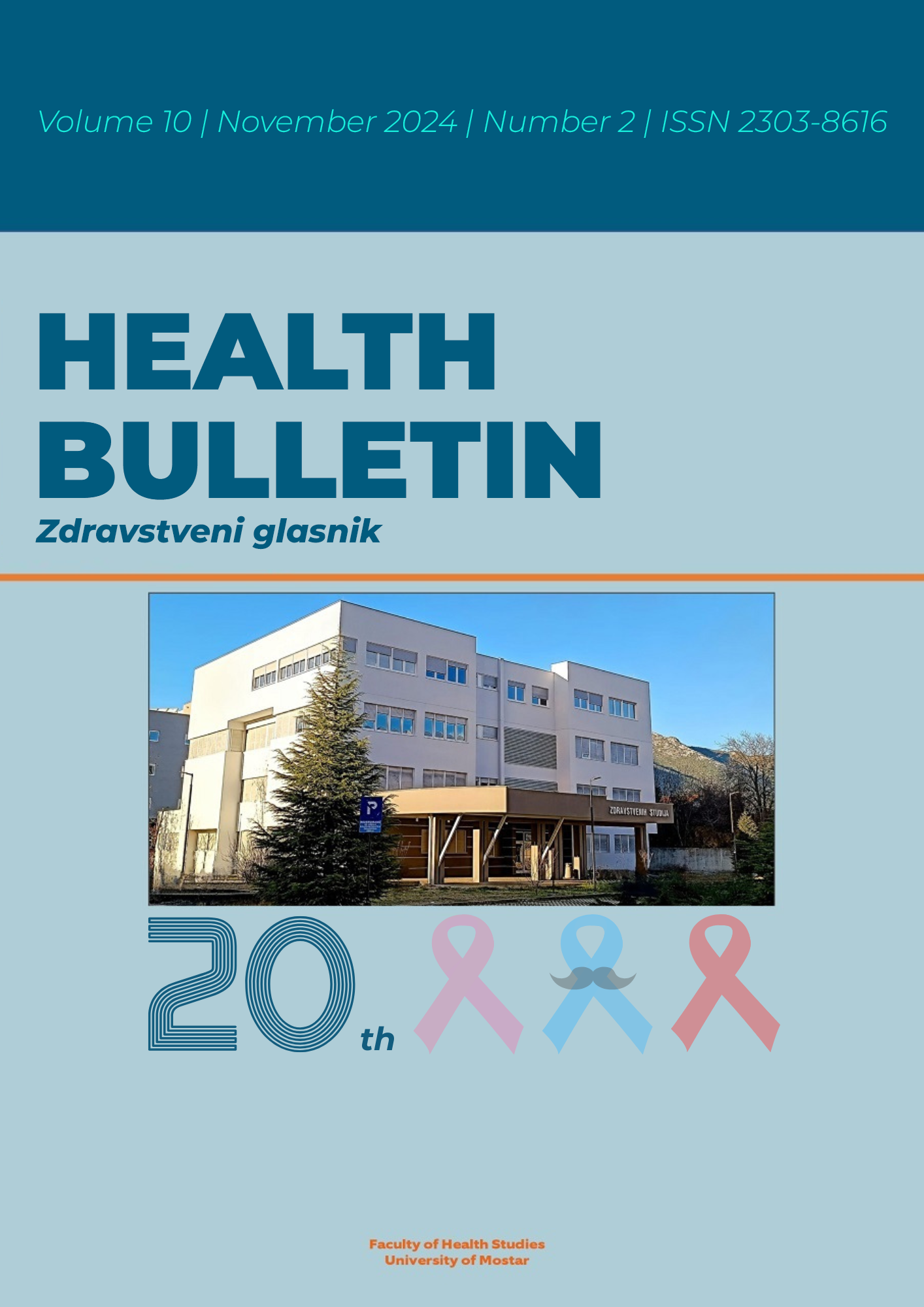COMPARATIVE ANALYSIS OF ADVERSE EFFECTS FOLLOWING BOOSTER DOSE BY DIFFERENT mRNA COVID 19 VACCINES AFTER TWO DOSES OF ADENOVIRAL VACCINATION IN HEALTH CARE WORKERS
Keywords:
COVID-19, COVID 19 Vaccines, booster vaccination, adverse effects, health-care workers.Abstract
Objective: This study explores the adverse effects to different messenger RNA (mRNA) vaccines (BNT162b2/Pfizer or mRNA-1273/Moderna) in health-care workers (HCWs) who received a third (booster) dose and were previously vaccinated twice with the adenoviral vector vaccine (ChAdOx1-S/Astra Zeneca).
Materials and methods: The data were collected based on surveys of 175 HCWs at the University Clinical Hospital (UCH) Mostar from October 2021 to March 2022. The participants filled out the initial general survey form immediately before the booster vaccination and a second survey form regarding adverse effects after the vaccination. Based on the administered vaccines, HCWs were divided into two groups – Pfizer and Moderna. Data organisation and statistical analysis were performed using Microsoft Excel and SPSS statistical software.
Results: Out of 175 participants, 132 (75.4%) had mild adverse effects post-vaccination, while no severe adverse effects were recorded. Adverse effects overall were significantly more frequent in participants vaccinated with the Moderna vaccine compared to the Pfizer vaccine (82.7%, P < 0.001) and were significantly more prevalent in women (82.5%, P = 0.031). Specifically, shoulder pain, chills, shivering, and fever were more frequently reported by participants vaccinated with the Moderna vaccine.
Conclusions: Both mRNA vaccines were considered safe to use, while the use of the Pfizer vaccine as a booster dose in a heterologous vaccination approach might have a lower incidence of adverse effects. Thus, the wide range of available vaccines is favourable during pandemic, and their dosages should be reconsidered primarily according to their immunological effectiveness in the future.
















